Aillén Mac Midgna: Evil Goblin Who Terrorized Sacred Hill Of Tara
A. Sutherland - AncientPages.com - Aillén Mac Midgna, known as 'the burner,' was a fire-breathing goblin. He represented the other world and was a member of the magical tribe known as Tuatha Dé Danann. He targeted his victims by playing fairy music from his magical harp, causing them to fall into a deep sleep.
Utopien 04. Image credit: Makis E. Warlamis - CC BY-SA 3.0
Every year during the Great Assembly, the Irish King (in English: Conn of the Hundred Battles') enlarged the number of men guarding the royal city, but in vain.
Still, the goblin managed to enter the area within the outer gates, and nobody recognized him. Moving promptly towards the palace, Aillén Mac Midgna could devastate the royal building with its flaming breath. He terrorized Ireland's most sacred location, the hill of Tara, the seat of Ireland's High King. It was an ancient ceremonial and burial site in County Meath, Ireland.
This happened every Samhain Eve for twenty-three years until Fionn of the Fianna conquered Aillén and killed him. Aillén appeared in Tara and played the Irish harp enthusiastically, causing everyone in the immediate area to fall asleep under his spell. He was aware that no one could resist the devastating influence of his music.
Then, he set fire to the great halls of Tara with the fire breathing. When done with his evil deeds, Aillén would return to his fairy mound at Sidhe Finnachaid, leaving the people to rebuild the great halls. Thus, he could continue year after another.
There Was Hope That The Young Fionn Of The Fianna Could Help
Fionn had already eaten of the Salmon of Fec, and now he owned all the gifts of wisdom. Fionn could summon the power of salmon by sucking his thumb. All he needed to do was put his thumb in his mouth, and everything he wished to discover was revealed to him. This extraordinary knowledge allowed the young Fionn to become the leader of the Fianna, the mythological warriors serving the High King of Ireland. The hero's name is often spelled 'Finn' in Scottish or sometimes 'Fingal,' the name originating from the poem 'Ossian' by a Scottish poet and writer, James Macpherson (1736-1796).
The Hill of Tara, County Meath, Ireland. Credit: Abobe Stock - MNStudio
Fionn knew beyond all doubt that he had been brought into the world to replace Cumall as head of the Fianna. The young man was brave, loved by his people, and admired by his comrades, who devoted their lives to him. They decided that the time had come for Fionn to claim his right to the leadership of the Fianna. They went and pledged him their support and friendship in this bravest of quests.
It was time for Fionn and his army to march to the Hill of Tara and plead their case before Conn Céadchathach, the High King of Erin.
"As it was now the month of November and the Great Assembly of Tara was once more in progress, a period of festivity and goodwill when every man was under oath to lay aside his weapon. Chieftains, noblemen, kings, and warriors journeyed to Tara for the grand event. All old feuds were forgotten as the wine and mead flowed freely, and the merry-making and dancing lasted well into the small hours. Fionn and his band of followers also arrived at Tara.
"They proceeded at once to the main banqueting hall, where they were welcomed by the King's attendants and seated among the other Fenian warriors. As soon as Fionn had walked into the hall, all eyes had been turned towards the golden-haired young stranger. They wanted to identify him, and so did the King.
"…Fionn walked forward to the royal table and introduced himself to the King and all others gathered in the hall:
"I am Fionn, son of Cumall," he declared, "and I have come to take service with you, High King of Erin, just as my father did before me as head of the Fianna."
At the moment, not all were very happy when they heard Fionn talking. No doubt, the blood-thirsty giant, Goll Mac Morna, was not, even when he listened to the King's voice directed at the young stranger.
"I would be honored to have you serve in my ranks," said Conn Céadchathach.
"If you are the son of Cumall, son of Trenmor, then you are also a friend of mine." 1
After this, Fionn bound himself in loyalty to the King, and his band of men followed his example, and each was presented with a sword of the Fianna.
Time To Get Rid Off Aillén - Fionn Confronts The Evil Goblin
Now, the young Fionn was ready to fight the evil goblin. He took his weapon and, lurking in the darkness, began his lonely nighty watch over the royal palace and the hill of Tara.
Finn (Fionn) fighting Aillen, illustration by Beatrice Elvery in Violet Russell's Heroes of the Dawn (1914). Image credit: Heroes of the dawn - Public Domain
Suddenly, an old warrior appeared in his sight and approached Fionn.
"I am Fiacha," said the warrior gently, "and I was proud to serve under your father, Cumall, when he was the leader of the Fianna. I carry the spear of enchantment which Cumall placed in my charge upon his death. Take this weapon," Fiacha said, "and as soon as you hear the fairy music, lay its blade against your forehead, and you will not fall under the melody's spell."
The spear was magnificent, both the sharp steel body of the blade and its beautifully shining handle of Arabian gold.
Suddenly something began to happen. Fionn caught sight of a mysterious shadow-like figure floating over the plain toward the palace. As the phantom figure came closer, Fionn began hearing the sweet sound from the harp strings.
Like everyone else, Fionn was not immune to the musical spell from Aillén, so he needed a way to avoid falling victim to the goblin's magic, but how could he do it?
Of course, he could do it thanks to the spear of the old warrior, Fiacha.
The spear of enchantment could be a rescue in this critical situation!
The brave Fionn quickly released the magical weapon from its leather shroud, and he lay the cold steel blade against his forehead and drew a long, deep breath as Fiacha instructed him.
Extraordinary power entered the young man's limbs, but in the meantime, the Aillén – unaware that Fionn was not under his control anymore – began to vomit burning fireballs through the gates of the palace.
It was time for Finn to attack because he was strong enough to do it. Aillén did not want this face-to-face confrontation with Finn, so he fled for his safety, hoping to reach the fairy mound at Sliabh Fuaid before Finn could overtake him.
But he failed. He did not have enough time to glide through the mound's entrance.
Fionn had cast his spear, striking down the goblin with a single fatal blow through the chest. Then Fionn bent over the corpse, removed Aillen's head, and carried it back to the palace so that everyone knew he had ended the reign of destruction.
After so many years, the terror finally came to an end.
True to his word, the King gave Fionn leadership over the Fianna warriors. Its leader at the time, the giant Goll Mac Morna, Fionn's enemy, stood down and swore loyalty to Fionn.
From this day ahead in time, it was considered the highest honor to serve under Fionn mac Cumaill. He was the best and bravest of Erin’s warriors, and it was a privilege to stand alongside him.
Updated on November 11, 2023
Written by – A. Sutherland - AncientPages.com Senior Staff Writer
Copyright © AncientPages.com All rights reserved. This material may not be published, broadcast, rewritten or redistributed in whole or part without the express written permission of AncientPages.com
Expand for referencesReferences:
Brigg, K. M., An Encyclopedia of Fairie
Sjoestedt, Marie-Louise. Celtic Gods and Heroes
Mackillop, J. Fionn mac Cumhail: Celtic Myth in English Literature
More From Ancient Pages
-
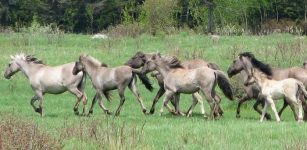 Use Of Horses In the Bronze Age – New Facts
Archaeology | Jul 14, 2020
Use Of Horses In the Bronze Age – New Facts
Archaeology | Jul 14, 2020 -
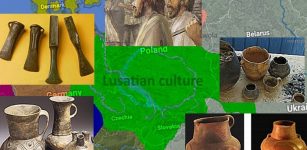 Lusatian Culture: Ancient Traders Of Central Europe Built Strongly Fortified Settlements To Withstand Scythian Attacks
Civilizations | Jan 27, 2024
Lusatian Culture: Ancient Traders Of Central Europe Built Strongly Fortified Settlements To Withstand Scythian Attacks
Civilizations | Jan 27, 2024 -
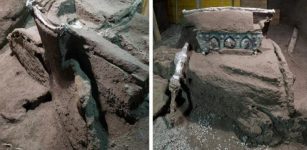 Extraordinary Ancient Roman Ceremonial Chariot Discovered In Pompeii – It’s Still Almost Intact
Archaeology | Mar 1, 2021
Extraordinary Ancient Roman Ceremonial Chariot Discovered In Pompeii – It’s Still Almost Intact
Archaeology | Mar 1, 2021 -
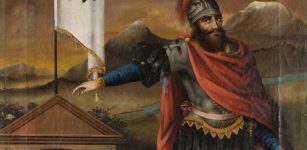 Hayk – Legendary Patriarch And Founder Of Armenia Who Defeated King Bel Of Babylon
Featured Stories | Feb 10, 2022
Hayk – Legendary Patriarch And Founder Of Armenia Who Defeated King Bel Of Babylon
Featured Stories | Feb 10, 2022 -
 Fascinating Gigantic Creatures Today Totally Extinct 13,000 Years Ago Co-Existed With Early Americans
Archaeology | May 8, 2012
Fascinating Gigantic Creatures Today Totally Extinct 13,000 Years Ago Co-Existed With Early Americans
Archaeology | May 8, 2012 -
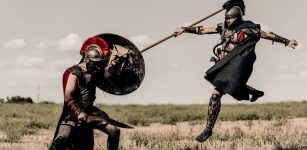 Why Was The Spartan Army So Successful?
Ancient History Facts | Apr 15, 2022
Why Was The Spartan Army So Successful?
Ancient History Facts | Apr 15, 2022 -
 Thousands Of Sacred ‘Images’ With Unknown Signs Hidden In A Monastery Could Be World’s Oldest Alphabet
Featured Stories | Jun 9, 2021
Thousands Of Sacred ‘Images’ With Unknown Signs Hidden In A Monastery Could Be World’s Oldest Alphabet
Featured Stories | Jun 9, 2021 -
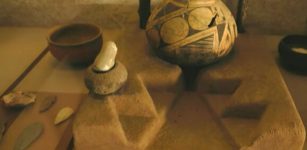 Ancient Artifacts Reveal The ‘Roots Of Casas Grandes’
Archaeology | Mar 8, 2023
Ancient Artifacts Reveal The ‘Roots Of Casas Grandes’
Archaeology | Mar 8, 2023 -
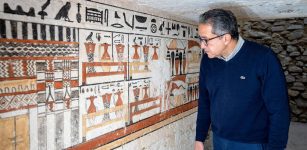 Five Magnificent Engraved Ancient Tombs Discovered Near King Merenre Pyramid In Saqqara, Egypt
Archaeology | Mar 19, 2022
Five Magnificent Engraved Ancient Tombs Discovered Near King Merenre Pyramid In Saqqara, Egypt
Archaeology | Mar 19, 2022 -
 Longstanding Cultural Continuity At Oldest Occupied Site In West Africa – New Study
Archaeology | May 4, 2023
Longstanding Cultural Continuity At Oldest Occupied Site In West Africa – New Study
Archaeology | May 4, 2023 -
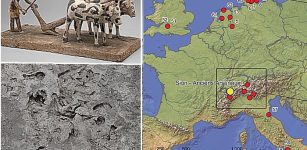 Exciting Find In The Swiss Alps – First Furrows And Animal Tracks Are Evidence Of Prehistoric Plowing
Archaeology | Apr 3, 2024
Exciting Find In The Swiss Alps – First Furrows And Animal Tracks Are Evidence Of Prehistoric Plowing
Archaeology | Apr 3, 2024 -
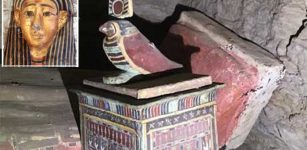 Huge Number Of Intact, Painted Coffins In Shafts Of Egypt’s Saqqara Necropolis
Archaeology | Nov 13, 2020
Huge Number Of Intact, Painted Coffins In Shafts Of Egypt’s Saqqara Necropolis
Archaeology | Nov 13, 2020 -
 Millennia Old Extremely Complex Object Of Unknown Origin
Ancient Technology | Jul 8, 2020
Millennia Old Extremely Complex Object Of Unknown Origin
Ancient Technology | Jul 8, 2020 -
 First Pompeiian Human Genome Sequenced Fron An Individual Who Died After The Eruption Of Mount Vesuvius In 79 C.E
Archaeology | May 26, 2022
First Pompeiian Human Genome Sequenced Fron An Individual Who Died After The Eruption Of Mount Vesuvius In 79 C.E
Archaeology | May 26, 2022 -
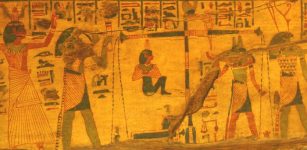 Meskhenet: Egyptian Goddess Of Household And Childbirth Who Governed Over Fate And Destiny
Egyptian Mythology | Mar 14, 2019
Meskhenet: Egyptian Goddess Of Household And Childbirth Who Governed Over Fate And Destiny
Egyptian Mythology | Mar 14, 2019 -
 Iron Age Site Tell Deir ‘Alla (“Mound Of The High Monastery”) Flourished 400 Years In Central Jordan Valley
Archaeology | Jul 25, 2022
Iron Age Site Tell Deir ‘Alla (“Mound Of The High Monastery”) Flourished 400 Years In Central Jordan Valley
Archaeology | Jul 25, 2022 -
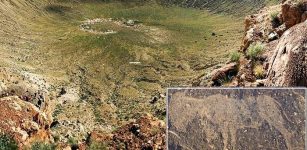 8,000-Year-Old Petroglyphs Discovered In Oldest Impact Crater In South Africa
Archaeology | Jun 21, 2019
8,000-Year-Old Petroglyphs Discovered In Oldest Impact Crater In South Africa
Archaeology | Jun 21, 2019 -
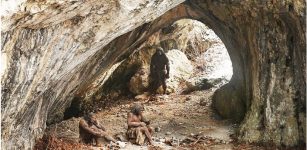 Ancient Secrets Of Polish Ciemna Cave Inhabited By Humans 120,000 Years Ago
Featured Stories | Nov 22, 2016
Ancient Secrets Of Polish Ciemna Cave Inhabited By Humans 120,000 Years Ago
Featured Stories | Nov 22, 2016 -
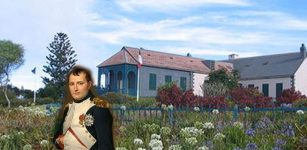 On This Day In History: Napoleon Bonaparte Dies In Exile – On May 5, 1821
News | May 5, 2016
On This Day In History: Napoleon Bonaparte Dies In Exile – On May 5, 1821
News | May 5, 2016 -
 4 Things Ancient Greeks And Romans Got Right About Mental Health
Featured Stories | Aug 30, 2024
4 Things Ancient Greeks And Romans Got Right About Mental Health
Featured Stories | Aug 30, 2024




